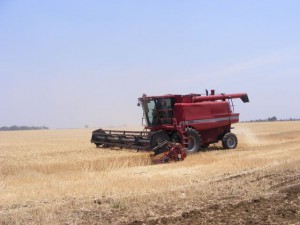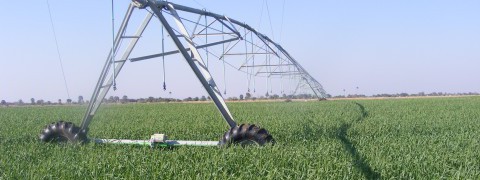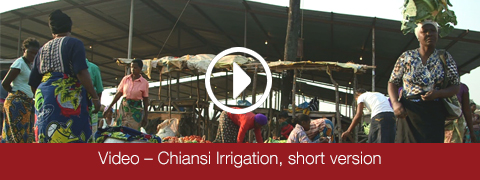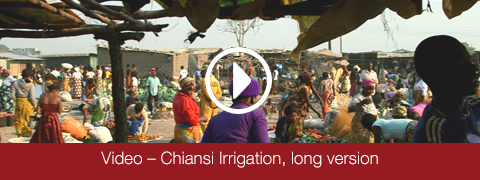This project intends to replicate the proof of concept pilot project, successfully implemented in Chanyanya in 2008, on a much larger scale.
The core objective is to establish a partnership between smallholder and commercial farmers in the project area, providing them with access to year-round irrigation with centralised management to create a sustainable commercial farming operation with pro-poor benefits.
The project area is situated in the Kafue district of Zambia, adjacent to the Kafue River and has long been characterised by poverty and underutilisation of available resources such as land, labour and water. The project represents a unique and practical opportunity to facilitate the exploitation of these abundant resources for the benefit of the local community.
This initiative represents a milestone in the new approach to agricultural development to establish viable farming operations that can be replicated across Zambia and elsewhere in Africa.
InfraCo Africa Project Case Study Chanyanya

Primary Economic Benefits
- Professionally operated and maintained Irrigation infrastructure
- Infield irrigation development for a 2,400 hectare farming operation, double cropping with a wheat and soya bean rotation;
- Provide up to 600 smallholder households which are members of landholder cooperatives with income from irrigated “market garden” plots;
- Replicate the Chanyanya pilot project to provide up to 600 smallholder families (up to 3,900 individuals) with year-round irrigation services for at least 25 years, enabling them to enhance their incomes through profitable commercial-scale farming;
- Introduce smallholders to commercial management techniques enabling them to increase yields, gain access to wholesale markets and obtain better crop prices;
- Provide smallholders with access to commercial finance by leasing infield irrigation and farming equipment;
- In the long term act as a catalyst for similar developments elsewhere in Zambia and across Africa.
Primary social benefits
- Create 100 full-time agricultural and infrastructure management jobs;
- End dependence on food aid for communities directly benefiting from the project (up to 3,900 individuals);
- Stimulate growth in the wider economy which supports 15,000 people;
- Provide potable water to the target communities via borehole developments;
- Extend the local electricity grid to public buildings such as schools, clinics and community centers in the project area.
Project Structure
- In exchange for access to their land through long-term leases, the small-scale farming communities will secure an equity stake in the project company. The project company will own the irrigation and farming assets and lease land from the various smallholder communities. The farmers will attain full ownership of the company once all investor funding has been repaid.
- In order to better access long-term patient capital to finance the high upfront infrastructural assets, the project developers see public private partnerships (PPP’s) as a key policy framework providing the basis for long term economic viability.
Project Relevance
- The Project is fully aligned with the key objectives of Zambia’s Poverty Reduction Strategy Paper (“PRSP”). Agriculture and in particular irrigated production has been given particular priority by the Government to form the basis of its national development programs and policies through its PRSP and in particular the 6th National Development Plan (2011-2015).
- This clearly sets out policies targeted at providing environment and strategies to develop the sector and highlights the underutilisation of water resources and the lack of infrastructure to exploit such resources.
Chiansi Irrigation Infrastructure
Zambia
Sponsoring government ministries
Ministry of Agriculture
Ministry of Finance
Approximate scope of project
Cost: $39 million
Time: Closing 2016
More Project Information
Kafue District
Adjacent to Kafue River
25 km south of Lusaka
Partners
Private Investors
Communities:
Chanyanya, Demu (North & South) and Chikupi
Small-scale farmers
Government Ministries:
Finance and Agriculture
Developer In Charge
Richard Parry






